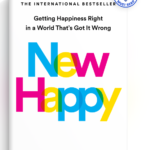Amidst the tsunami of marketing advice and insights offered by experts, academics, and industry gurus, not all counsel is created equal. Some well-intentioned advice could lead you down the wrong path, hindering rather than enhancing your marketing efforts.
Not all marketing advice is equal. Some of it sucks.
In this blog post, I’ll dissect ten pieces of lousy marketing advice that could potentially derail your strategy, backed by insights from academics and renowned marketers with decades of relevant experience.
Ten Terrible Pieces of Marketing Advice for Start-ups and Young Businesses
1. Don’t Waste Your Time Creating a Proforma or a Plan
The purpose of pro forma is to analytically predict how well a business will perform in the future, helping business owners make the best decisions. This also informs potential investors which companies to invest in for future investment opportunities. By putting your assumptions into a well-crafted spreadsheet, you can see what capital will be required to build your business, the prices you’ll need to charge, and how much capital is necessary to invest in marketing.
A rigorous proforma isn’t accurate, but it is a plan you keep updating as you get new information and learn from experience. Beyond the proforma, a plan, even if just a few pages helps you put on paper your assumptions. (channels, pricing, positioning, etc.)
2. Cast a Wide Net and Target Everyone
Contrary to the notion that casting a wide net maximizes reach and engagement, marketing to everyone often results in diluted messaging and wasted resources. As marketing expert Seth Godin asserts, successful brands thrive by targeting specific niches and catering to their audience’s unique needs and preferences.
By segmenting your audience based on demographics, psychographics, and behavior, you can deliver tailored messages that resonate deeply with target segments, fostering stronger connections and driving higher conversion rates. This strategy of quality over quantity in audience targeting enlightens marketers and informs their decisions, leading to more effective marketing campaigns.
The F word is the best advice you can receive – FOCUS narrowly.
3. Copy Competitors’ Strategies Blindly
While competitive analysis is essential for understanding market dynamics, unquestioningly emulating competitors’ strategies can be counterproductive. Renowned marketer Jay Baer warns against the dangers of copying competitors, emphasizing the need for differentiation and innovation.
Instead of playing catch-up, brands should focus on discovering their unique value proposition and delivering experiences that set them apart. By identifying gaps in the market and innovating creatively, brands can establish themselves as leaders rather than followers.
4. Ignore Negative Feedback and Criticism
In the age of social media, where every consumer wields the power to amplify their voice, ignoring negative feedback and criticism is a dangerous mistake. According to research by Harvard Business Review, responding to negative reviews and addressing customer concerns can improve brand perception and loyalty. By acknowledging feedback, taking ownership of mistakes, and demonstrating a commitment to customer satisfaction, brands can turn detractors into advocates and mitigate potential reputational damage. Embracing criticism as an opportunity for improvement is critical to fostering trust and credibility in the eyes of consumers.
5. Depend only on automated marketing solutions.
While marketing automation tools offer efficiency and scalability, relying solely on automation can erode the human touch and authenticity that resonates with consumers. Marketing guru Neil Patel warns against the dangers of automation overload, emphasizing the importance of personalized communication and genuine engagement.
Instead of automating every interaction, marketers should balance automation and human interaction, leveraging technology to streamline processes while maintaining a human-centric approach. By infusing campaigns with authenticity and empathy, brands can forge deeper connections with their audience and stand out in an increasingly automated world. “Depend only on automated marketing solutions.”
6. Follow Trends Blindly Without a Strategy
In the ever-evolving landscape of marketing trends, it’s easy to succumb to the allure of shiny new tactics without a clear strategic framework. However, according to marketing scholar Philip Kotler, chasing trends unthinkingly without a coherent strategy can result in wasted resources and missed opportunities.
Rather than jumping on the bandwagon of every fleeting trend, marketers should take a strategic approach, aligning tactics with overarching business goals and target audience preferences. By grounding decisions in a robust strategic foundation, marketers can navigate the turbulent waters of trends with purpose and precision.
By studying the competition, you start to learn the language of a category, and this can inform how you can indeed be different, offer distinctive value, and put a fresh spin on selling in your universe.
7. Overpromise and Underdeliver
Tempting as it may be to make lofty promises to attract customers, overpromising and underdelivering is a surefire way to erode trust and tarnish brand reputation. Marketing expert Ann Handley emphasizes the importance of authenticity and integrity in marketing communications.
By setting realistic expectations and consistently delivering on promises, brands can foster long-term trust and loyalty among their audience. Honesty and transparency are the cornerstones of a strong brand reputation.
8. Neglect the Power of Word-of-mouth Marketing
In an era dominated by digital channels, it’s easy to overlook the enduring power of word-of-mouth marketing. Contrary to the belief that word-of-mouth happens organically, marketing scholar Jonah Berger asserts that brands can actively cultivate and amplify word-of-mouth by providing remarkable experiences worth discussing.
Ignoring the potential of word-of-mouth marketing deprives brands of one of the most influential drivers of consumer behavior. By prioritizing customer satisfaction, fostering brand advocacy, and incentivizing referrals, brands can harness the power of word-of-mouth to fuel organic growth and amplify their reach.
9. Avoid the Importance of Brand Storytelling
In a cluttered marketplace where consumers are bombarded with messages from countless brands, neglecting the importance of brand storytelling is a missed opportunity. Marketing luminary Simon Sinek emphasizes the power of storytelling in forging emotional connections and building brand affinity.
By crafting a compelling brand narrative that resonates with consumers’ values and aspirations, brands can differentiate themselves and leave a lasting impression. Authentic storytelling humanizes the brand, evoking empathy and fostering loyalty among customers.
10. Focus Exclusively on Short-Term Results
While short-term results are essential for immediate impact, prioritizing short-term gains at the expense of long-term sustainability is a myopic approach. Marketing strategist Mark Ritson warns against the pitfalls of short-termism, advocating for a balanced perspective that considers both short-term and long-term objectives. Investing in brand building, customer relationships, and brand equity may not yield immediate returns, but it lays the groundwork for sustained growth and resilience in the face of market fluctuations. By adopting a holistic view of marketing that encompasses both short-term and long-term strategies, brands can achieve enduring success in an ever-changing landscape.
Bad Advice is Easy to Find
In summary, avoiding these ten pieces of lousy marketing advice can help marketers and businesses navigate the complexities of the marketing landscape with wisdom and foresight. By prioritizing authenticity, differentiation, customer-centricity, and long-term sustainability, brands can cultivate meaningful connections with their audience and achieve lasting success in the competitive marketplace.
But don’t take my advice, what do I know?
Connect with Jeff at The Marketing Sage Consultancy. Interested in setting up a call with me? Use my calendly to schedule a time to talk. The call is free, and we can discuss your brand and marketing needs. If you want to learn more about my new offering, The Trusted Advisor Board, you can click here to learn the details. Feel free to email me at jeffslater@themarketing sage.com or text 919 720 0995. Thanks for your interest in working with The Marketing Sage Consultancy.

Photo by Ivan Krivoshein on Unsplash




